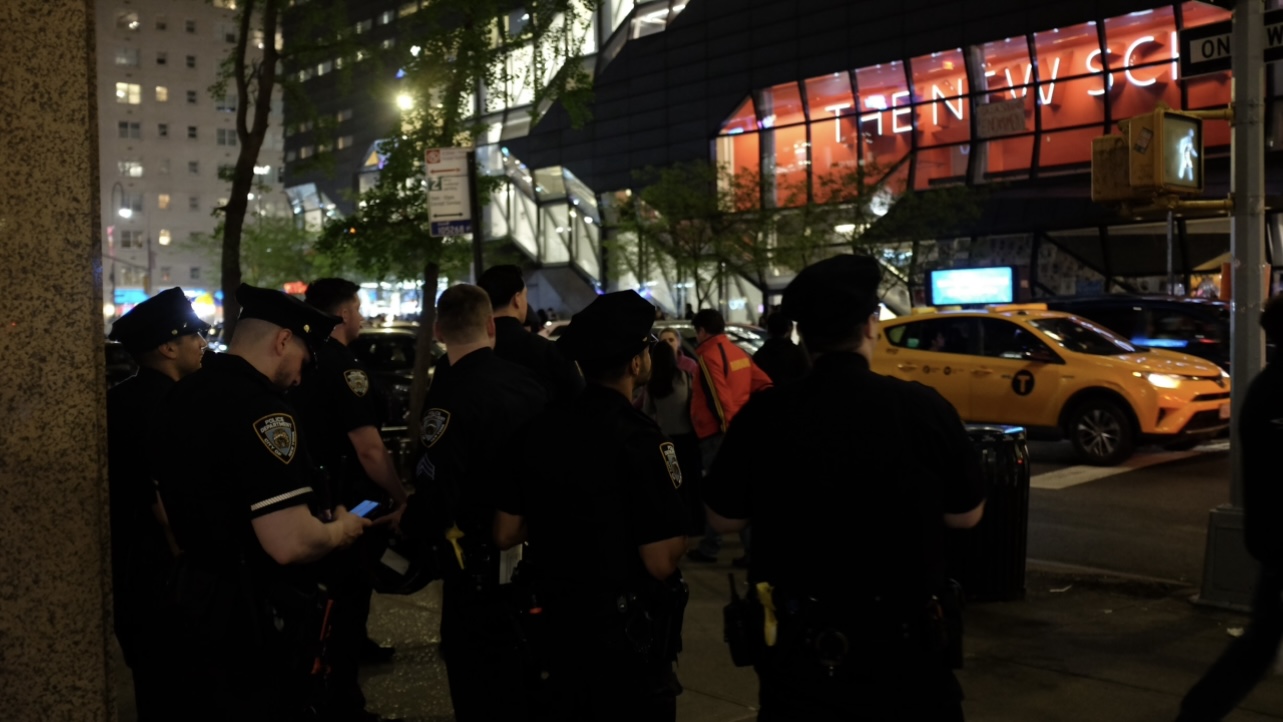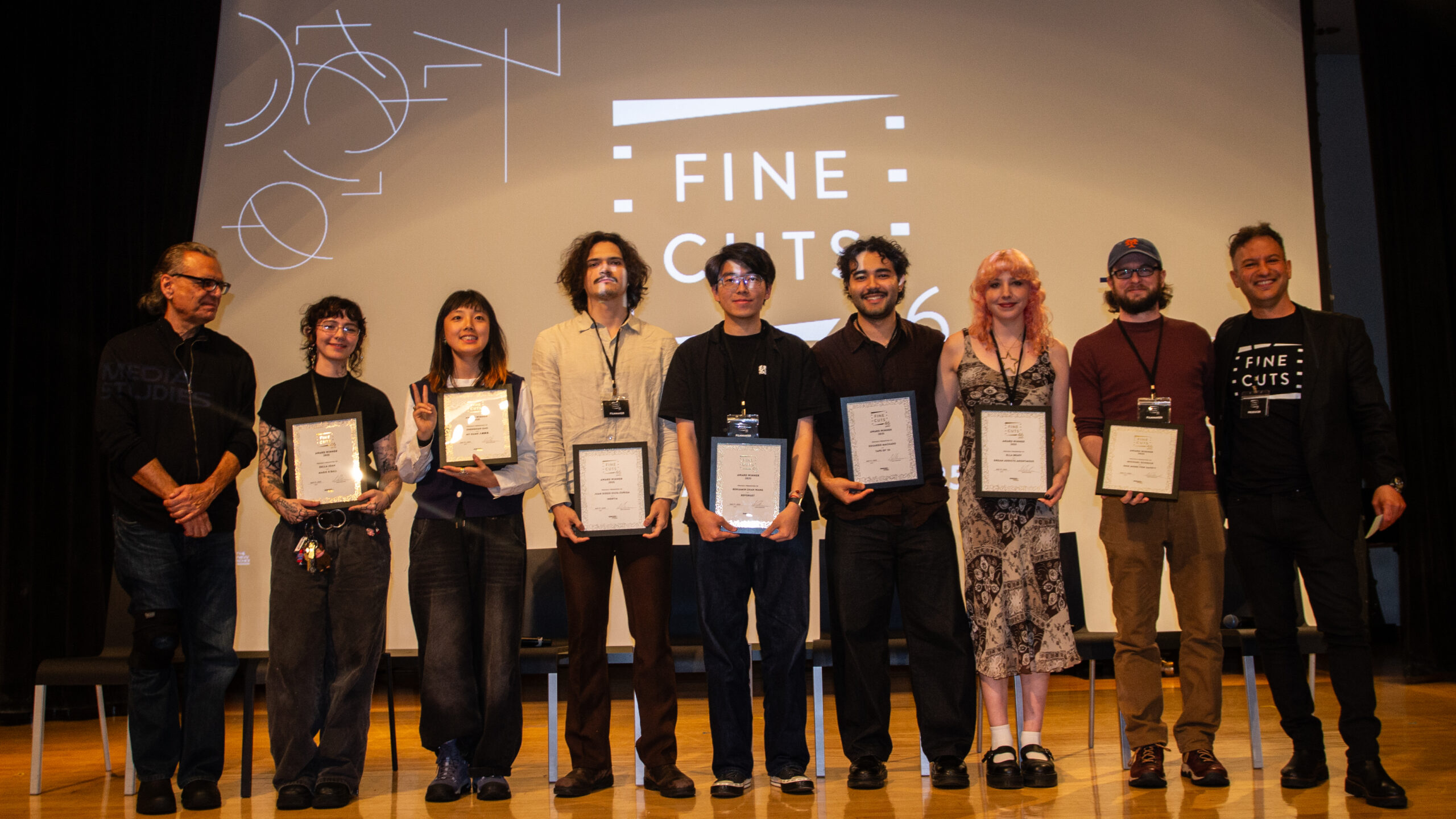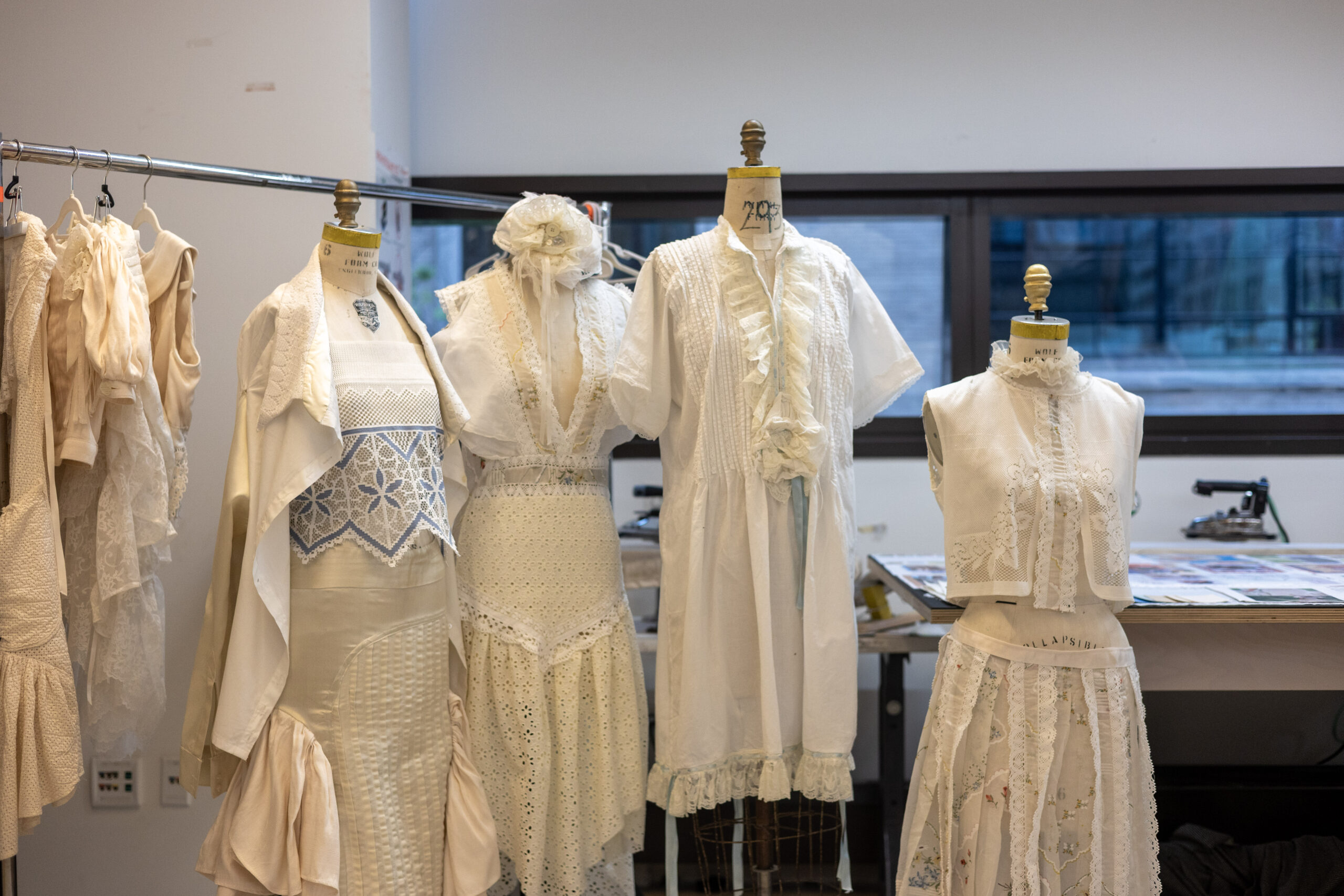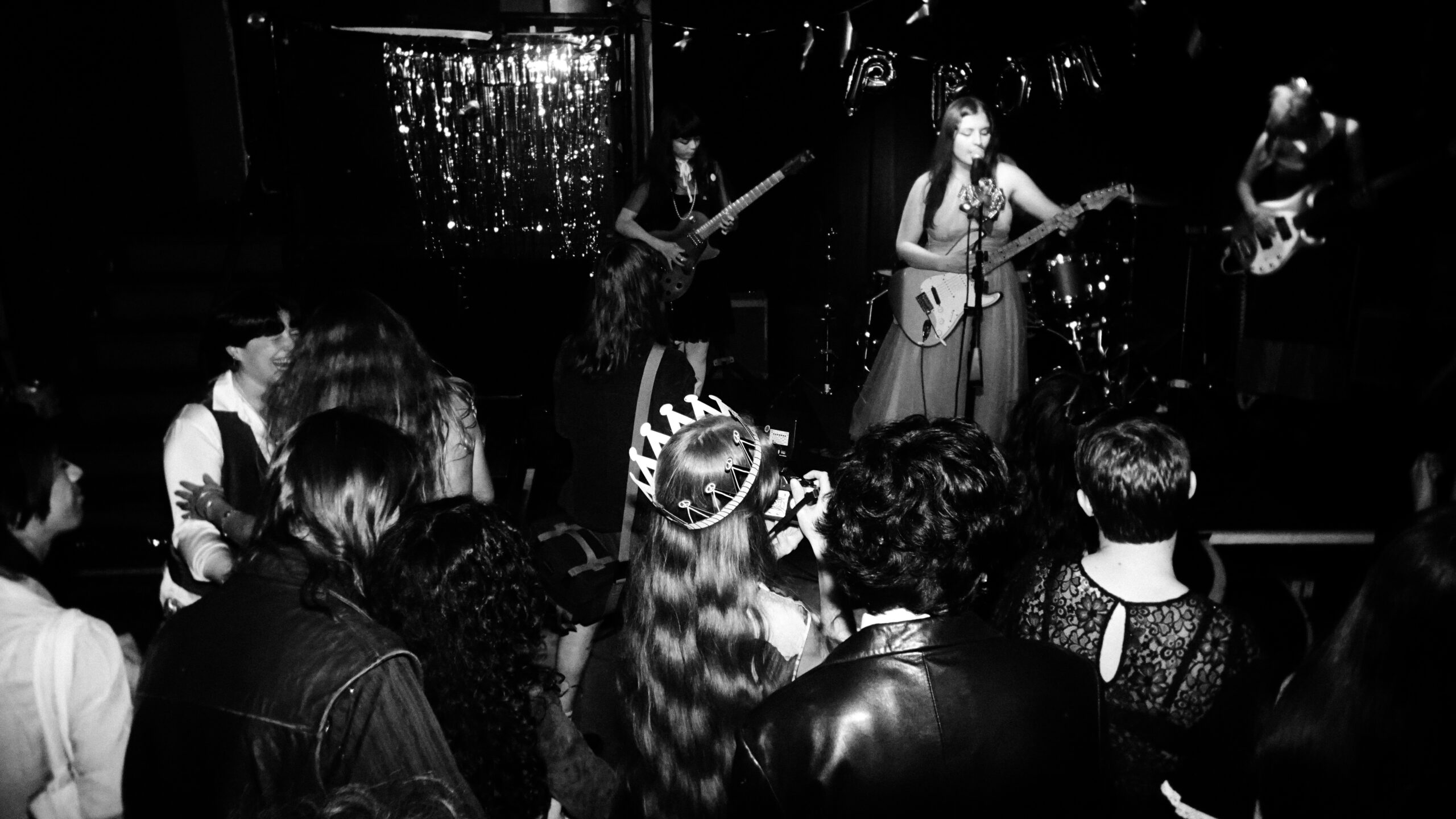The New School does not intend to press charges against students arrested at the Gaza Solidarity Encampments on May 3, university spokesperson Amy Malsin told the New School Free Press.
In an email, Malsin confirmed statements from the Executive Deans of TNS that the administration would not pursue criminal charges.
The Deans’ statement, which was sent in a university-wide email, also states that the university plans to provide expeditious review of the temporary suspensions issued to students.
The deans put further emphasis on the need for the university to provide supportive measures for arrested international students, and urged for no further action that could “jeopardize their ability to remain in the U.S.”
Even though the university does not plan to press charges, an arrest on record can still damage international students’ ability to study in the U.S. When re-applying for an F-1 student visa to study in the U.S., any arrested international student must disclose that they have been arrested on the DS-160 Non-Immigrant Visa Application even if they were not convicted or had their case dropped.
The deans stated that they were troubled by the decision to call New York Police officers on campus resulting in the arrest of students. “It is unimaginable to us that we came to this point given how far removed it is from our history, our values,” they said.
The statement included an additional list of propositions for the community and the university. The deans proposed that the university should respond to any “anti-Semitic conduct,” investigate “claims of discriminatory disciplinary proceedings against pro-Palestinian protesters,” and examine “university disciplinary procedures.”
The deans also encouraged “robust engagement of students, faculty and staff with the Investment Committee of the Board of Trustees along with community education and discussion about investment principles, the history of divestment at the university, potential obstacles and timelines for divestment and like topics.”








Leave a Reply